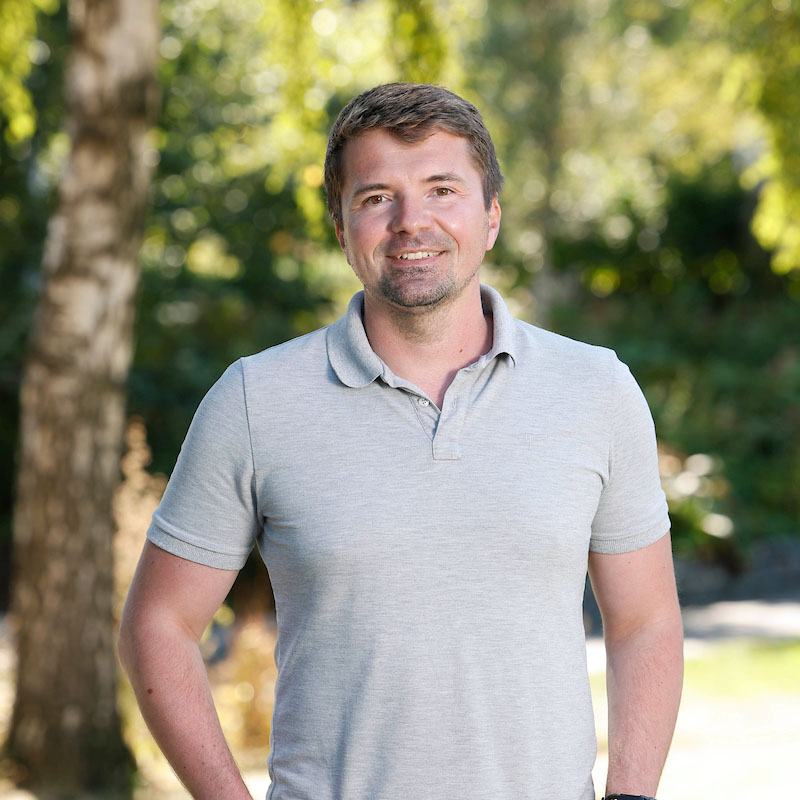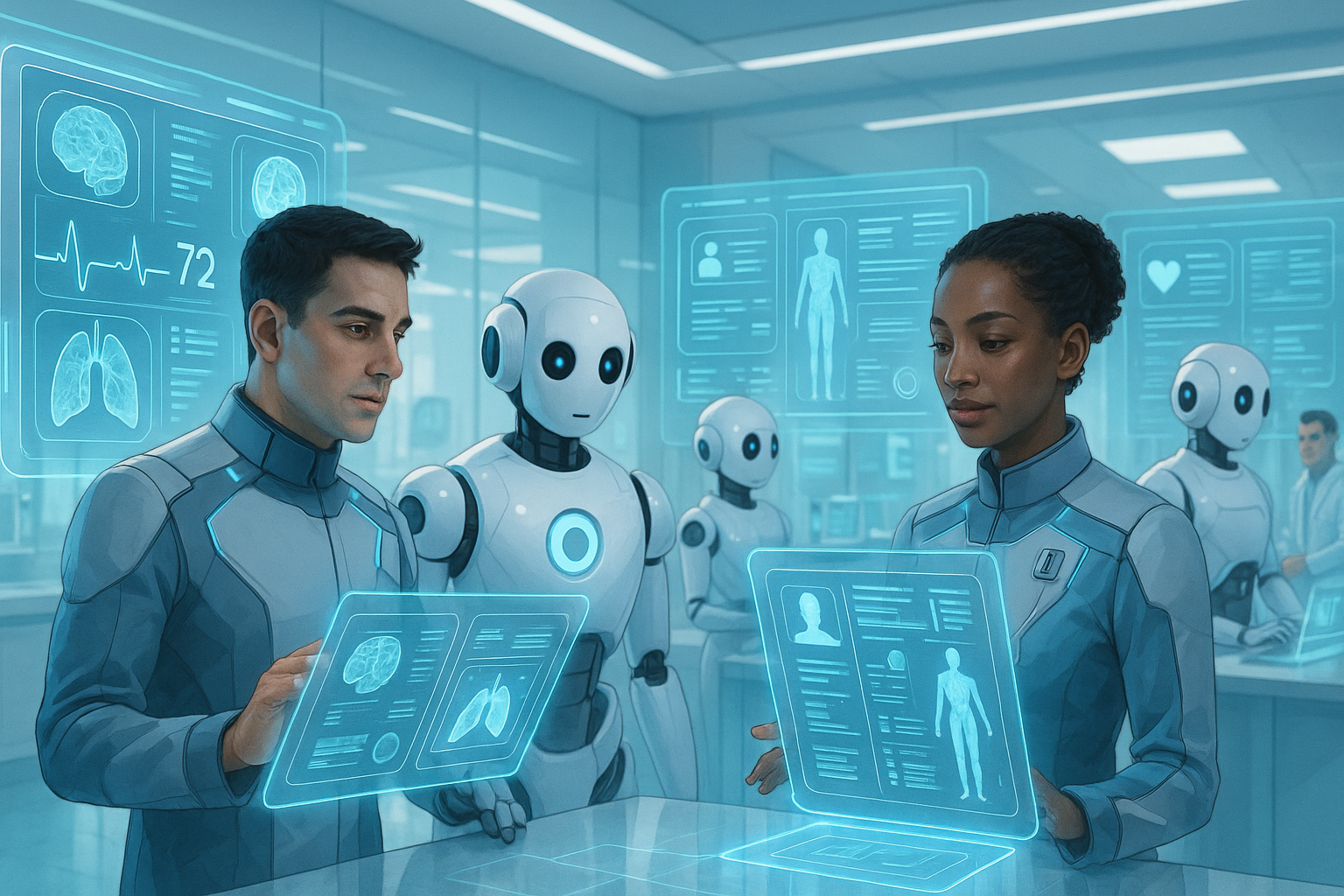The AI Healthcare Revolution is Already Happening
Here's the thing - AI isn't coming to healthcare, it's already here. We're talking about systems that can spot fractures doctors miss 10% of the time, predict which patients need ambulance transport with 80% accuracy, and even detect over 1,000 diseases before symptoms appear.
AI Healthcare Growth
According to recent reports, AI in healthcare is projected to grow at a staggering 85% annually, reaching $22 billion by 2027. That's faster growth than any other sector.
But here's what's interesting - despite all this potential, healthcare is still "below average" in AI adoption compared to other industries. This presents both a challenge and an enormous opportunity for healthcare professionals who choose to embrace the change.
The Jobs That Are Safe (Spoiler: Most of Us!)
Good news first - healthcare jobs are among the most AI-resistant out there. Why? Because we do things that robots can't: show empathy, make complex judgment calls, and provide that human touch that patients desperately need.
Nurses & Nursing Assistants
AI can handle our paperwork, but it can't comfort a scared patient at 2 AM.
Physical & Occupational Therapists
Hands-on rehabilitation requires the human touch that AI cannot replicate.
Mental Health Counsellors
Emotional intelligence and empathy are irreplaceable human qualities.
Physician Assistants
Complex clinical decision-making and patient interaction remain human-centered.
Veterinarians
Animals are unpredictable patients requiring human expertise and compassion.
What Geoffrey Hinton Says
"There's almost no limit to how much healthcare people can absorb. Make doctors 5x more efficient, and we'll just provide 5x more care!"
The Positions Feeling the Heat
Let's be real - some roles are going to change significantly. But here's the key insight: most of these aren't disappearing entirely - they're evolving.
Administrative Roles
These are already being automated:
- Medical billing and coding
- Appointment scheduling
- Medical transcription
- Insurance claims processing
Diagnostic Support Roles
AI augmentation is happening in:
- Radiologists - AI is getting scary good at reading scans, though human oversight is still crucial
- Pathologists - AI can spot cancer cells with 94% accuracy
- Medical lab technicians - Automated analysers are handling more routine work
The Evolution, Not Elimination
Radiologists aren't being replaced; they're becoming super-radiologists who can focus on the complex cases while AI handles the routine screening. This is the pattern we're seeing across healthcare - AI as an enhancement tool, not a replacement.
What This Means for Healthcare Professionals
The consensus from healthcare leaders is clear: AI won't replace healthcare workers - it will empower them. Studies show AI could free up to 70% of the time we currently spend on administrative tasks, giving us more time for what we got into healthcare for - caring for patients.
McKinsey research suggests that while AI might automate about 10% of nursing activities, demand for nursing occupations is still expected to increase by 39% by 2030. We're not looking at job losses - we're looking at job transformation.
My Take? Embrace the Change
Look, change is never comfortable, but this one feels different. Instead of technology replacing us, it's finally giving us the tools to practice healthcare the way we always wanted to - more time with patients, better diagnostic tools, and less paperwork bureaucracy.
Healthcare Professionals Who Will Thrive:
Stay Curious
Continuously learn about new AI tools and how they can enhance your practice
Embrace New Workflows
Be open to changing how you work as AI tools become integrated
Develop Human Skills
Focus on empathy, communication, and complex problem-solving - skills no algorithm can replicate
The healthcare professionals who will thrive are those who learn to dance with AI, not fight it. That means staying curious, being open to new workflows, and focusing on developing those uniquely human skills that no algorithm can replicate.
Looking Forward
This transformation isn't something happening to us - it's something we're actively participating in. Every healthcare professional has the opportunity to shape how AI integrates into their field. The question isn't whether AI will change healthcare - it's how we'll guide that change to better serve our patients and our profession.
What's your experience been with AI in your healthcare setting? Are you seeing it as a threat or an opportunity? I'd love to hear from fellow healthcare professionals about what you're seeing on the ground.
References
- 7 ways AI is transforming healthcare | World Economic Forum
- Top 25 Jobs That Won't Get Eliminated by AI Anytime Soon: Your Ultimate Guide to Career Security in an AI-Driven World - The Interview Guys
- The 65 Jobs With the Lowest Risk of Automation by Artificial Intelligence and Robots
- The 'Godfather of AI' says this sector will be safe from being replaced by tech—but even then, only the 'very skilled' will hold down a job | Fortune
- Transforming healthcare with AI: The impact on the workforce and organisations | McKinsey

